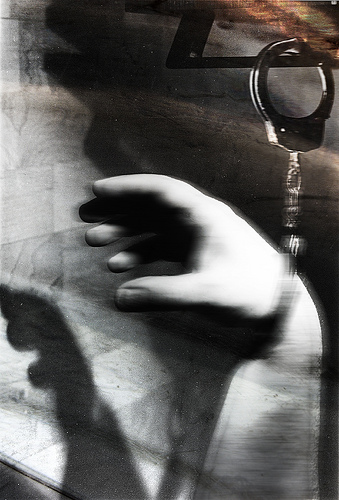Last week it was reported in the media that Aaron Yoon, who is currently detained in Mauritania on terror-related charges, might be connected to two other Ontarians who were involved in the terrorist hostage-taking in Algeria. This hostage-taking which ended up costing the lives of most of the hostage-takers, including the Canadian young people involved, took place only a few days after France invaded Mali to “liberate” its inhabitants from Islamists.
Speculations and anonymous government sources quickly filled newspapers and the blogosphere. These sources were mainly interested in defending one position: the government’s. To the claim that Aaron Yoon didn’t receive consular assistance, a source vehemently denied this as “false, completely false.” The same source continued by saying that Aaron Yoon received “nine consular visits.”
Canadians who have not been detained abroad have no clue what consular visits really mean. These visits mainly consist of a Canadian embassy representative coming to prison where the suspect is imprisoned and asking him, most of the time in the presence of his jailers, how he is doing. I will leave to your imagination the authenticity of the answers the Canadian consul would hear!
My husband Maher Arar was detained in Syria at the notorious Palestinian Branch (a.k.a. Fir’Falistin) under suspicion of terrorism activities. During his stay he received eight of these consular visits over a one-year period. According to the reports I used to receive from the Department of Foreign Affairs, he looked submissive and always said he was “doing well.” All Canadians knew later after he came back that he was abused and mistreated and tortured. If this happened in 2003 at the crux of the War on Terror in Syria, a country infamously known for its human rights abuses, why wouldn’t this repeat itself these days in Mauritania, an entry door to Mali (the African Afghanistan) where major confrontations are taking place between Al-Qaeda and its allies on one hand and the U.S. and its allies on the other.
Another service consular assistance usually provides is making sure that the Canadian citizen detained abroad has access to a lawyer and offered an open and fair trial abroad. The same source didn’t mention anything about that. Did Aaron Yoon receive legal assistance during his trial? What sort of trial did he get? Various newspapers reported that the trial wasn’t public and that Aaron was sentenced because he allegedly planned to join Islamist fighters in northern Mali.
So if Aaron was arrested in December 2011, I assume that the RCMP and DFAIT were aware of his whereabouts. Did they do anything to stop the two other Canadians who ended up participating in the In Amenas gas plant hostage-taking? Did they meet Aaron Yoon in prison? Did they try to understand what he was doing there?
Many questions still remain to be answered, and simplistic analysis and false claims won’t help to shed light on the Canadian action (or inaction) with respect to this troubling case.
Moreover, one should keep in mind that Mauritania is not even close to an aspiring democracy. It is another country where the participation in the “War on Terror” is well summarized in this latest Amnesty International human rights story:
In May, 14 prisoners who had been sentenced for terrorism activities were taken at night from a Nouakchott central prison to an unknown location. In June, some of their belongings were returned to their families without any explanation. The whereabouts of the 14, including Sidi Ould Sidina and Mohamed Mahmoud Ould Sebty, remained unknown at the end of the year. The authorities told an Amnesty International delegation in November that they had been transferred for security reasons.
In a detailed article published in the New Yorker in July 2003, the famous investigative journalist Seymour Hersh described how the Syrian government clandestinely helped the Bush administration in its War on Terror by offering its notorious jails (including torture services of course) and sharing hundreds of files about Muslim Brotherhood militants or sympathizers. Syria mainly did this as a sign of good will in order to rejoin peace talks with Israel.
Those “poisoned pills” Syria offered to the U.S. culminated in many innocent Canadians being detained and tortured. I don’t have any documented evidence that this might be the case with Mauritania playing this new role, but as they say, the past is the best description of the present.
There might well be terrorists arrested by Mauritania but we should not forget that there are likely innocent people being detained as well. Aaron Yoon could be one of them. A little dose of cautiousness with respect to the government’s claims doesn’t hurt.
Monia Mazigh was born and raised in Tunisia and immigrated to Canada in 1991. Mazigh was catapulted onto the public stage in 2002 when her husband, Maher Arar, was deported to Syria where he was tortured and held without charge for over a year. She campaigned tirelessly for his release. Mazigh holds a PhD in finance from McGill University. In 2008, she published a memoir, Hope and Despair, about her pursuit of justice, and in 2011, a novel in French, Miroirs et mirages.
Image: Lance Page / t r u t h o u t; Adapted: Mark Coggins, Lara604



